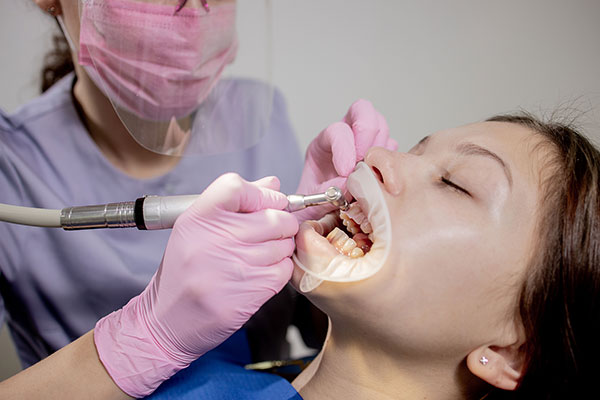Dental Implants Endeavour Hills: Cutting-Edge Modern Technology for Perfect Implants
Enhance Your Oral Health Journey With Dental Implants: Every Little Thing You Required to Know Prior To Deciding
In the realm of modern dental care, oral implants have actually become a groundbreaking solution for individuals seeking to recover their dental wellness and redeem their smile. The choice to embark on a journey towards oral implants entails careful consideration of different aspects that can considerably influence one's total wellness. From comprehending the benefits and kinds of dental implants to navigating via the complex procedure and post-surgery recuperation, each element plays an important function in the success of this transformative process. Nonetheless, before taking the following step, it is imperative to dive deeper right into the ins and outs of dental implants to make an informed choice that lines up with your dental health and wellness goals.
Benefits of Dental Implants
Dental implants provide a plethora of advantages for individuals seeking a long-lasting remedy to missing out on teeth. Contrasted to traditional dentures or bridges, oral implants give an even more long-term and secure alternative for tooth substitute. One significant advantage is the preservation of bone framework in the jaw. When a tooth is shed, the surrounding bone can weaken gradually, resulting in a sunken facial appearance. Oral implants serve as artificial tooth roots, avoiding and stimulating the jawbone bone loss.
Furthermore, oral implants function and feel like natural teeth, permitting boosted speech and eating capacity. Unlike detachable dentures, implants are strongly secured in the jaw, removing any worries regarding sliding or pain while speaking or eating. This stability additionally adds to enhanced confidence and self-confidence for individuals with missing teeth, as they can interact and grin without fretting about their oral restoration shifting.
Kinds of Oral Implants

Endosteal implants are the most typical type and include surgically placing implants straight into the jawbone. These implants are generally made of titanium and offer a strong foundation for synthetic teeth.
Zygomatic implants are a less common kind that are longer than typical implants and support into the cheekbone rather than the jawbone. These implants are utilized when there wants jawbone for endosteal implants. Understanding the various kinds of oral implants is important for both individuals and dental professionals to figure out one of the most appropriate option based on specific requirements and situations.
Dental Implant Treatment Introduction
A detailed summary of the procedure for dental implants clarifies the complex steps associated with attaining successful tooth replacement - dental implants endeavour hills. The procedure begins with an extensive examination and appointment to analyze the individual's oral wellness and figure out the suitability for oral implants. Following this, the dental professional will surgically put the implant right into the jawbone, where it will function as a tough structure for the artificial tooth
After the dental implant is placed, a recovery duration of several months is commonly required to permit osseointegration, during which the dental implant fuses with the bordering bone tissue. An abutment is connected to the implant to link the fabricated tooth once the dental implant has actually integrated effectively. Ultimately, a tailor-made crown is fastened to the abutment, finishing the repair process.
Throughout the procedure, individuals can anticipate meticulous care and support from their oral group to guarantee ideal outcomes. By understanding the numerous phases involved in dental implant placement, individuals can make educated choices concerning this resilient and reliable tooth substitute option.
Healing Process After Dental Implant Surgical Treatment
Upon conclusion of the oral implant treatment, the recuperation procedure following surgery plays an important duty in ensuring successful integration and healing of the implant. The immediate post-operative period is essential for the formation of blood clots and the initial stages of tissue recovery. People may experience some pain, swelling, and bruising in the days adhering to surgical procedure, which can usually be taken care of with suggested discomfort medicines and cool compresses.
Throughout the recovery phase, it is essential to comply with all post-operative treatment directions given by your dental professional or dental specialist carefully. It is recommended to stick to a soft-food diet regimen originally to prevent putting too much pressure on the dental implant website.
Regular follow-up consultations will be arranged to monitor the development of the recovery procedure and guarantee that the dental implant is incorporating well with the surrounding tissues. By description complying with these recuperation standards, patients can improve the success price of their oral implant procedure and pave the means for a healthy, resilient tooth replacement service.
Upkeep and Long-Term Treatment
Ensuring proper maintenance and lasting care is vital for the longevity and success of dental implants. After the preliminary recovery duration following the implant surgical procedure, maintaining excellent oral hygiene practices is critical to avoid complications such as peri-implantitis, a problem similar to gum tissue illness that can lead to dental implant failure. Normal cleaning with a soft-bristled toothbrush, flossing, and utilizing an anti-bacterial mouthwash are key parts of oral look after oral implants.
Additionally, routine dental check-ups and cleanings are crucial to keep an eye on the wellness of the implants and surrounding tissues. Your dental original site practitioner will certainly examine the security of the implants, check for any signs of inflammation or infection, and make certain that the prosthetic teeth are working properly. X-rays may also be taken periodically to review the bone framework and the stability of the implants.
It is necessary to avoid habits that can endanger the implants, such as cigarette smoking or chewing hard objects - dental implants endeavour hills. By adhering to these maintenance guidelines and looking for routine professional treatment, you can assist ensure the long life and success of your oral implants
Conclusion

Zygomatic implants are a much less typical kind that are longer than typical implants and anchor right into the cheekbone rather than the jawbone.After the implant is put, a healing duration of several months is often needed to allow for osseointegration, throughout which the dental implant merges with the surrounding bone cells. When the dental implant has actually integrated successfully, an abutment is affixed to the implant to attach the synthetic tooth.Upon conclusion of the dental implant treatment, the recovery procedure following surgery plays a critical role in making certain effective combination and recovery of the implant. After the preliminary recovery duration adhering to the implant surgical treatment, maintaining great dental hygiene techniques is crucial to stop complications such as peri-implantitis, a condition comparable to gum tissue disease that can lead to implant failure.